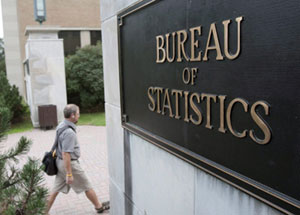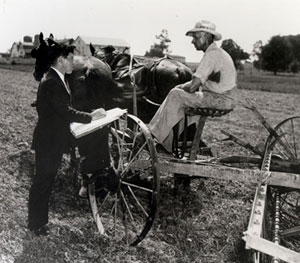 |
| Statistics Canada offices. |
Perhaps the only positive to come out of this summer’s brouhaha over the federal government’s decision to replace the mandatory long-form census with a voluntary survey is the rebranding of the Canadian statistician.
For fair play and honesty, StatsCan is the new Mountie.
“It’s absolutely bizarre,” says Dalhousie professor emeritus of statistics Chris Field, sporting a bemused grin, “To see statistics on the front page of the Globe for 10 days or two weeks in a row is unprecedented.”
While Munir Sheikh reaching near-heroic status may be good for the profession’s profile, the point is largely moot to Professor Field. What confounds him is the government’s decision to interfere with census methodology in the first place.
“I don’t understand the government’s motives,” he says plainly. “Historically, they have left the methodological issues -- how the surveys are collected, all the issues of analyzing the data -- to the professionals. And here, they are simply ignoring professional advice.”
Dr. Field started teaching statistics at Dalhousie in 1970. He was the President of the Statistical Society of Canada and a former member of the methodology advisory committee for Statistics Canada.
 |
| The first national census was held in 1861. Here, a census taker interviews a farmer in the 1930s. |
Aside from a close call in 1986, when Brian Mulroney’s government nearly cut a census to save money, he cannot recall any government action of the last 40 years that would affect the census as fundamentally as this current decision regarding the long form.
What happens when a census stops being mandatory and becomes voluntary? The simple answer is, lots. It stops being a census and that change starts to unravel our statistical knowledge of Canada, says the group of Dal social scientists discussing the issue in sociology Professor Yoko Yoshida’s office.
“When we teach statistics in our undergraduate courses,” says Howard Ramos, associate professor of sociology, “one of the first lessons that are taught is that you have to get a representative non-biased sample.”
“Whenever you move to doing a voluntary census,” Prof. Ramos explains, “it moves from being a census to a survey and you no longer have the representation of the full population and you end up having systematic bias that creeps into it.”
A mandatory census gives statistical results professionals call gold standard data.
“The information that stems from the census is very accurate,” says Prof. Yoshida, for two reasons: the high response rate and because the responses draw information from one-fifth of the population across all parts of the country.
As the gold standard, census data gets applied to research all across the country.
“Many voluntary surveys use the census to gold standard their biases, to understand what they missed and make corrections for that,” Prof. Field explains. “Without that gold standard of a reliable database that can be trusted, we simply have no idea. The census data -- I won’t say becomes useless -- but has much less use than it currently has.”
'Rupture in research'
There will be a catch-22 when it comes to verifying the voluntary census itself, says Martha Radice, professor of social anthropology. “The catch-22,” she says “is that we won’t even be able to verify how representative the new voluntary national household survey [the replacement for the long form] is, because we’ll have lost that baseline benchmark data.”
“There will be a rupture in research in Canada,” Prof. Radice adds, “whereby after 2011, we lose all comparability with past data on basic things like how do you get to work, where do you work, does anyone living at this address have reduced mobility,” and other questions on the long form.
“Without having accurate data on this kind of basic information,” says Prof. Ramos, “we literally could be building roads in the wrong places.”
Changing the census has implications for Atlantic Canada, says Prof. Ramos who studies immigration patterns across the Atlantic provinces with Dr. Yoshida.
“We have a small population and we are often missed in the national surveys,” says Prof. Ramos. “The census is one of the only means in which we can get quality data on Atlantic Canada. The migration question on the census is one of the main tools to understand who is coming in and out of the province. If this is not going to be part of the long form, we’re going to have more inaccurate means to understand who is coming in and out and why they are coming in and out.”
Ninety-five per cent of Canadians currently respond to the census. "A voluntary census runs a high risk of generating low response rate from socially and economically marginalized groups," Yoshida says. Their non-response will skew results across the country.
Compounded the problem
Even if the government spends $25 million to promote census participation, Prof. Field does not feel that response can be matched by voluntary means.
“Unfortunately, by all the publicity, if it does remain voluntary, the non-response rate, in spite of all the advertising, is still going to be between and 10 and 20 per cent,” Professor Field says.
“The government tells people they should be worried about their privacy, and a lot of people are going to see that long form and say, “I’ve listened to the government and I am not going to fill it out.” They’ve compounded the problem.”
Back in ’86, statisticians managed to convince the Mulroney government to abandon its plans “quietly,” says Prof. Field. He calls current proposal by the National Council of Statistics “very sensible. It gave the government a nice compromise to get out of this situation, to keep it [mandatory] for this census.”
It’s with the same quiet sensibility that Prof. Field hopes a compromise can be reached before the next census in 2011.
